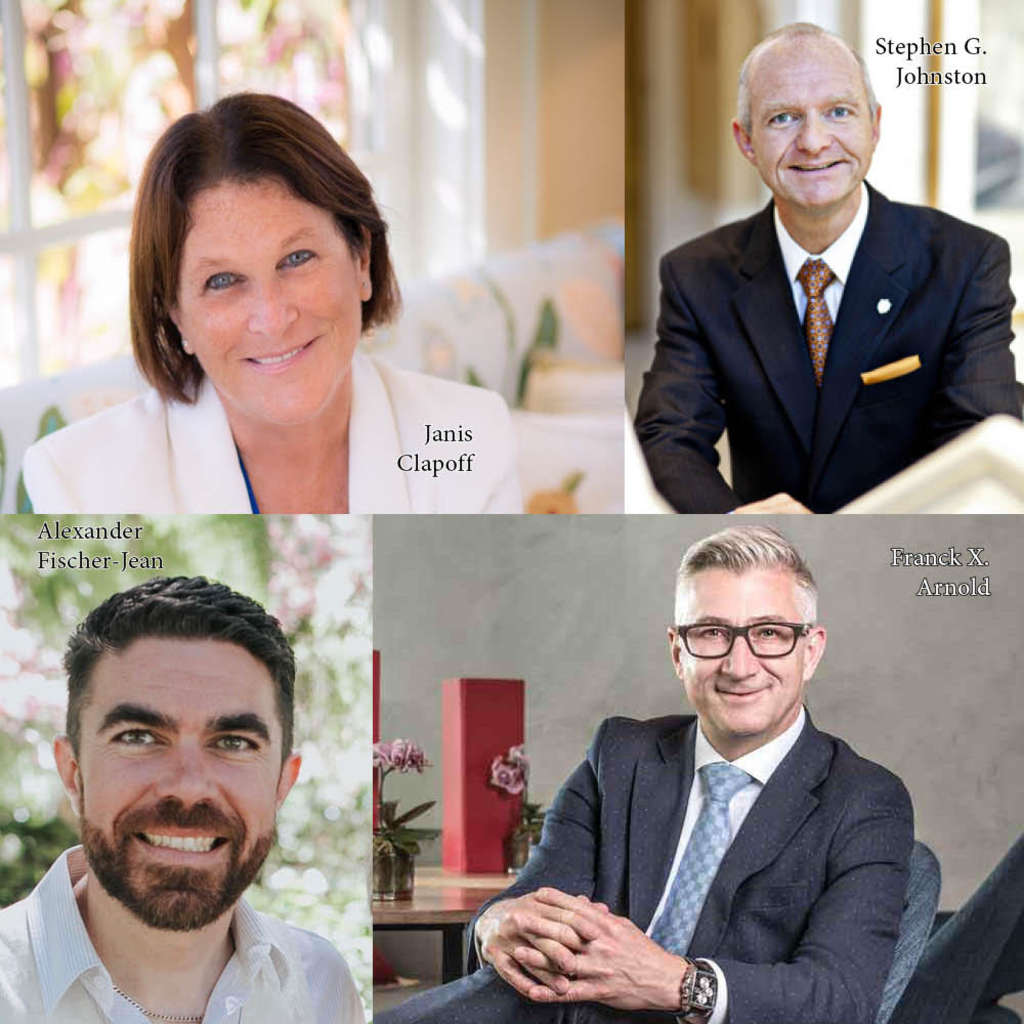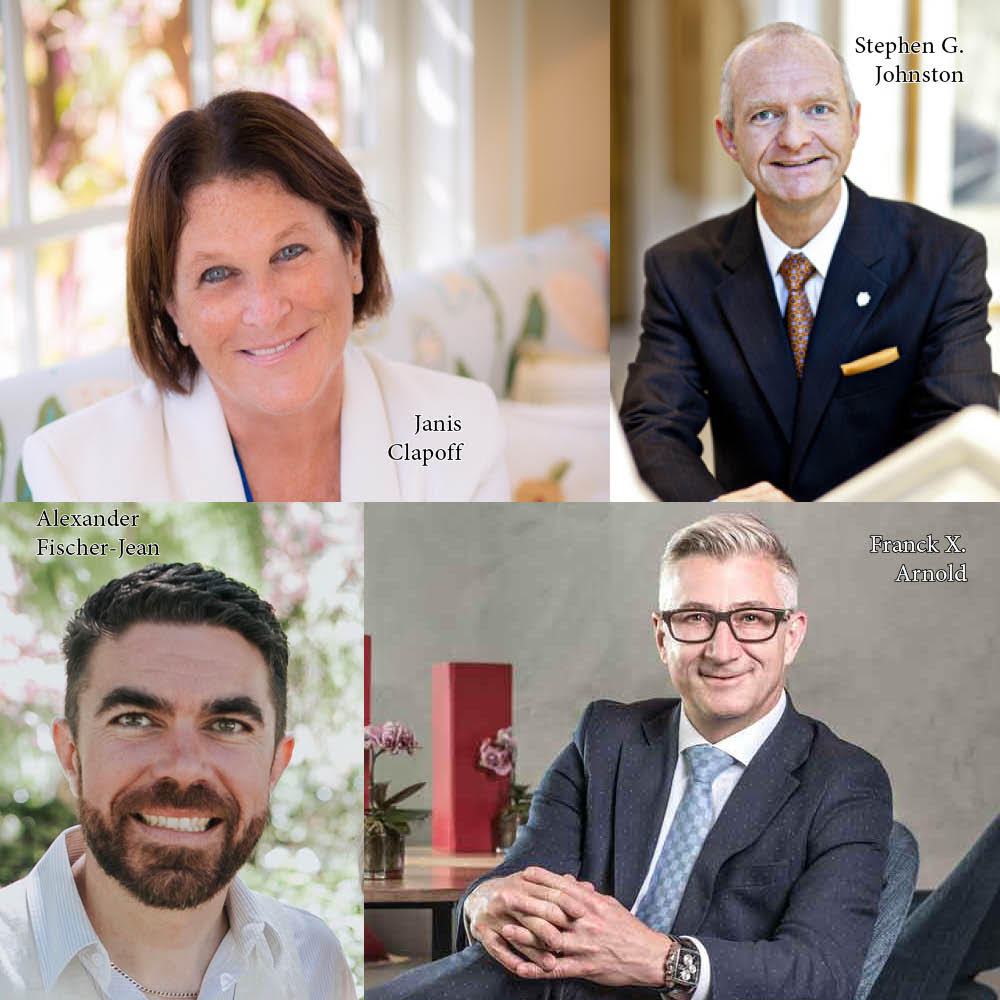Preparing the Year Ahead for Post-COVID Hotel Luxury

As hoteliers work tirelessly to reopen their properties in an uncertain world and with many new Covid policies that must be implemented, who has the time to look ahead at what will be required for the rest of the calendar year and into 2021?
Particularly at the luxury end where close contact is a hallmark of great guest service, changing rapidly takes a sound mind to steer the ship as the hospitality world ebbs and flows through the post-pandemic cycle. To help understand where this segment is headed, I've recruited four veteran GMs:
- Franck X. Arnold, General Manager of the Ritz-Carlton, Toronto (263 rooms)
- Janis Clapoff, Managing Director of the Lake Austin Spa Resort in Texas (40 rooms)
- Alexander Fischer-Jean, General Manager of the Harbour House Hotel on Salt Spring Island in British Columbia (50 rooms)
- Stephen G. Johnston, Managing Director of the Boston Harbor Hotel (232 rooms)
How is the concept of luxury going to be impacted for your guests? Arnold: We anticipate that the expectations of luxury services and amenities will remain, but cleanliness expectations will be higher. Due to the new government regulations that will be put in place with regards to social distancing, we will be required to change the capacity of how many guests we will be able to serve in our outlets. Some guestroom amenities and services may have to be amended (like Sunday brunch) or offered on request (like turndown or minibar items), but new, more individualized experiences. In-room dining service will be carefully packaged and dropped at the door with an option to be plated on our traditional high-end chinaware, but also potentially in a home delivery format.
Fischer-Jean: I anticipate some older traditions of luxury service will become obsolete as the new concept of luxury is still being developed. Perhaps it's an increase in disposable or individually packaged amenities to give the guest greater confidence that a particular item has had minimal to no human contact. Cleaning and sterilization tools for housekeeping will become more prevalent and affordable.
Johnston: I am hopeful that the concept of luxury will not change for our guests. While some of the technicalities of staying with us will certainly be different, that is not what luxury is about. In my mind, luxury is about anticipating the needs of our guests and respecting their time - time being one of the most precious things we have. Despite the restrictions of social distancing, there is nothing that will prevent us from surprising and delighting our guests in both old and new ways, and we are excited about some of the new ways that we will find to provide a luxury experience.
Clapoff: Luxury equals service. The highest levels of service, empathy and servant leadership have to be constant. This will be enhanced, not impacted. Service and sensitivity to our traveler, our staff's ability to utilize emotional intelligence and their need for reassurance or assistance in any way are the next elevation in luxury. This should not be seen as an impact to guests but more so a heightened sense of service that guests deserve.
What technologies will you be employing to reduce contact? Fischer-Jean: We already have an almost contactless guest experience that includes automatic entry doors, touchless soap dispensers and hand sanitizer dispensers, RFID contactless guest doors, and even tap debit and credit card capabilities.
Johnston: At the time of writing, I have no plans to introduce new technology to our operation. We already have bedside tablets from Intelity that allow guests to order services seamlessly and easily, and this is also available on a mobile app that allows guests to communicate with us while they are on the move. All of the infrastructure is already in place to allow guests as little or as much engagement with us as they would like.
Clapoff: We're looking into online registration as well as a credit card compliance system whereby no presentation of cards will be necessary. We're also researching having an Echo Dot for each room.
Arnold: The Ritz-Carlton and Marriott brands have always been committed to using technology to improve the guest experience. We are looking at using electrostatic sterilizing sprayers to clean and disinfect rooms and public spaces more thoroughly as well as using hospital grade disinfectants. UV light wands are also being considered to disinfect some of the operating equipment. Thermal scanners or cameras may be used to measure staff temperature before they enter the premises. Mobile technology is also something that we have already implemented where guests can check-in, use mobile keys and chat with our Ladies and Gentlemen to make requests such as housekeeping services and in-room dining contactless services.
How long do you believe it will be until business is restored to the levels seen in 2019? Clapoff: We think the small boutique, wellness concept properties will return to 'normal' levels quicker than the larger property. We are anticipating a medium ramp-up, but occupancies and revenues may not fully return until end of 2021.
Arnold: We may not be able to return to 2019 levels until all government's restrictions are lifted, borders are opened, airplanes are flying at capacity and a vaccine is implemented, restoring confidence for business and leisure guests to travel freely again.
Fischer-Jean: This is the most difficult questions to answer as this is a global pandemic. But my goal is to resort business to normal levels by 2021.
Johnston: It is difficult to say but I suspect it will be a few years before we see 2019 levels again.

